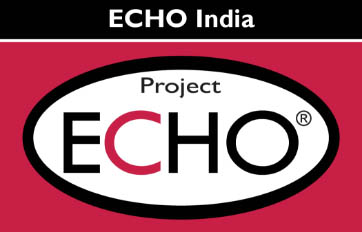The pandemic has been one of the toughest challenges for humanity in recent years. With the infection spread taking a toll on the economy, human life, and the overall morale of people, it has been a steep incline to overcome. The importance of accessible healthcare was brought out in these adverse times, because it showed the world that there were still many paths for healthcare to travel to reach everyone.
The Infection Prevention and Control programme was introduced to create a network of knowledge without needing to move people from place to place. The programme was created keeping in mind the need to strengthen and upskill the existing network of nurses. The Infection Prevention and Control programme using the ECHO model was introduced in Maharashtra and West Bengal, which joined in the mission as the partner states. The objective of the programme was to improve the existing knowledge base for nurses, along with training them to improve their overall scope of information, particularly in the areas of infection control and prevention.
The 12-month programme collaborated with four state partners, i.e., Brihanmumbai Municipal Corporation (Maharashtra), Maharashtra Nursing Council (Maharashtra), National Health Mission (Maharashtra), and Kolkata Municipal Corporation (West Bengal). After deliberations with public health leaders, the initial focus on infection prevention and control was expanded to cover more skills such as employability, communication, etc. Some of the skills that were a part of the expanded curriculum were learning soft skills such as verbal and written communication, body language, time-management, dealing with stress at one’s workplace etc.
This programme aimed to lay out protocols for infection prevention and control such as hand hygiene, respiratory hygiene, PPE kit wearing protocols, etc. Precautions such as regular handwashing with soap, coughing and sneezing etiquette, prevention of sharp injuries, safe handling of patient care equipment, and environmental infection control are integral parts of the curriculum which provides all-around preventive learning so that nurses can not only treat their patients better, but also minimise the risk of infection within themselves.
The programme believes in a case-based approach to learning, whereby using specific situations, a problem is highlighted and the same case is used as a teaching moment for a specific aspect of infection prevention and control. While tackling matters of infection, the programme also focuses on Healthcare-Associated Infections (HAIs).
Given how dynamic the spread of infection can be, the programme also tackles the unique infection prevention and control practices that can be implemented in different units of a hospital, such as Maternal Units, Neonatal Units, Surgical Units, and Haemodialysis units. The specific instructions involved handling the equipment in the given unit, scrubbing up for the unit, and the possible sites of infection that could be exposed to the patient or the nurse, and other necessary protocols.
While healthcare workers were essential to combating the pandemic’s effects on the general population, they were also at the highest risk of infection through constant exposure during the pandemic. The programme accommodated this concern by identifying different workplace hazards. The different modules also included the treatment, segregation and disposal of Biomedical Waste which is key to stopping the spread of infection outside hospital premises.
After its launch in the two partner states, the reception has been heart-warming and positive. The programme has given a sense of hope to continue these efforts on a larger scale, partner with more states and ultimately, have a positive impact on the overall scope of healthcare in the country.
